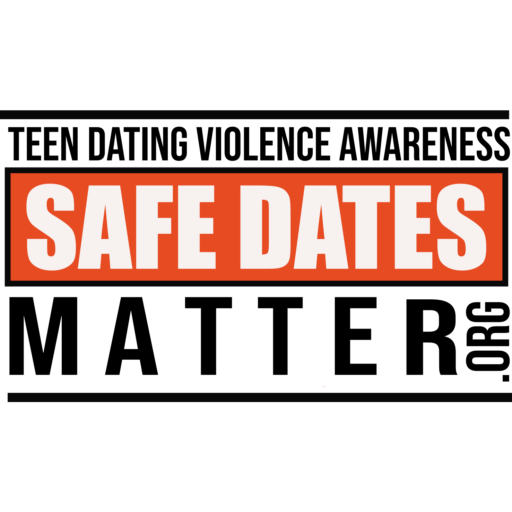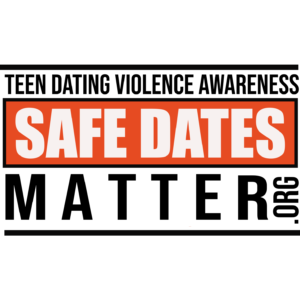We want you to be empowered to get the support you deserve. No one should have to go through an unhealthy or abusive relationship alone.
When you are going through a rough time in your relationship, you may feel abandoned and alone but you’re not. There are many people in your life and your community who can help. Talking to and confiding in a Safe Journey teen counselor advocate, a trusted friend, a teacher, a school counselor, a family member, or others in your community can provide the of support you need to make it safely through these hard times. Let’s figure out who can help?
A Safe Journey Teen Counselor Advocate
A Safe Journey teen counselor advocate can provide effective support to help you manage an unhealthy or abusive relationship. A teen counselor advocate is trained to listen to your concerns without judging you. Your safety is the No. 1 priority and all support is free and confidential. A teen counselor advocate will help you understand what is happening in your relationship and help you decide what options are right for you. A Safe Journey teen counselor advocate also can meet you at your school and assist you in filing a Protection From Abuse order. You can reach out through the safedatesmatter.org website or by calling Safe Journey at (814) 438-2675. Teen counselor advocates are mandated reporters, which means there may be times when they are required to tell someone about your situation, depending on the state or school policy. It’s important to talk to your teen counselor advocate about what situations are required to be shared with others.
Friends
Friends may see that you are in an unhealthy or abusive relationship and be able to help. Still, it may be difficult for the two of you to talk about what you are going through. They may know something is wrong, but they don’t know how to approach you. They may think bringing it up will make you mad. It may be hard for you to tell them about your situation because you are not sure how they will react. “Will I be judged?” “Will my friend tell other people?” You know who your true friends are. It can be well worth the risk to share your story with a friend in order to accept their love, encouragement, and unconditional support.
Family
Family members also can help. After all, they are probably the people who know you the best. But talking about your abusive relationship with your family can also be challenging, on both sides of the family fence. Even though your parents and siblings may suspect that something is going on with you, they may not recognize that you are in an unhealthy relationship. If they do know, they may not know how to bring it up to you. Even though they are around you the most, it can be embarrassing and scary to talk to a family member. What if your parents didn’t want you to date at all, and now you’re in an unhealthy or abusive relationship? What will they do? Will they be angry or upset? How do you start the conversation? What if you confide with a brother or sister and they tell your parents? You will have to weigh the risks and rewards when opening up to your immediate family. If you have a family member you can trust, it will be well worth the effort to open up.
Community Members
Consider reaching out to people you meet frequently in your community. Some of these members might be a bus driver, a doctor, a school nurse, a store employee, a neighbor, a local YMCA staff member, or others. Look around and you might find the person who can truly help you.
Teachers
Many teachers care about students and want to help in any way they can. Try talking to one of them for support. At first, it may be hard to start the conversation, but try to make a connection. You might open a conversation by discussing a topic that interests them. If it is one of your own teachers and you feel comfortable, let them know you need to talk. Teachers also are mandated reporters, which means there may be times when they are required to tell someone about your situation, depending on the state or school policy.
A Faith Leader or Mentor
There might be someone in your faith community that you could reach out to. Many people of faith want to help and may be willing to talk to you. If you don’t belong to a church, talk to friends or family and see if there is a church in your community that would be a good fit for you.
School Counselors
A school counselor may be trained on how to respond to teen dating abuse and could be someone to reach out to. They may also help you talk to a Safe Journey teen counselor advocate, your parents, a school resource officer, or another trusted adult. Because talking about your relationship may be difficult, consider reaching out to your school counselor about another situation. When you feel more comfortable, start talking to them about your relationship.
Coaches
An athletic coach is another person you might be able to talk to. Many coaches focus on your mental well-being as well your physical well being. Break the ice by talking to your coach about another issue. When you feel comfortable, you can talk to them about your relationship. Coaches also are mandated reporters and may be required to report any abuse to their superiors.
Extended Family
You might find support from an extended family member, such as a grandparent, an aunt, an uncle, or a cousin. Be upfront with your family member about your needs. If you’re not ready for their advice, it’s OK to say you’re just looking for someone to listen. Also, be sure to point out any information you want to keep confidential and clarify what’s OK to share with others.
School Resource Officer or Police
A school resource officer or police officer may be a valuable resource. Let the officers know what you want from them. Local police should be up to date about the laws concerning dating abuse. They will listen to you or give you information about legal consequences if certain actions occur in your abusive relationship. They can provide answers to your questions about your rights and tell you what resources are available to you in your community. They can be by your side when you call a Safe Journey teen counselor advocate.




